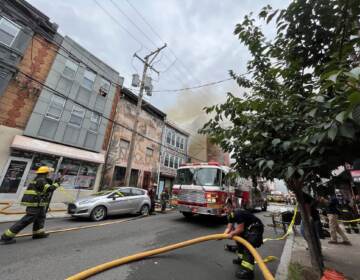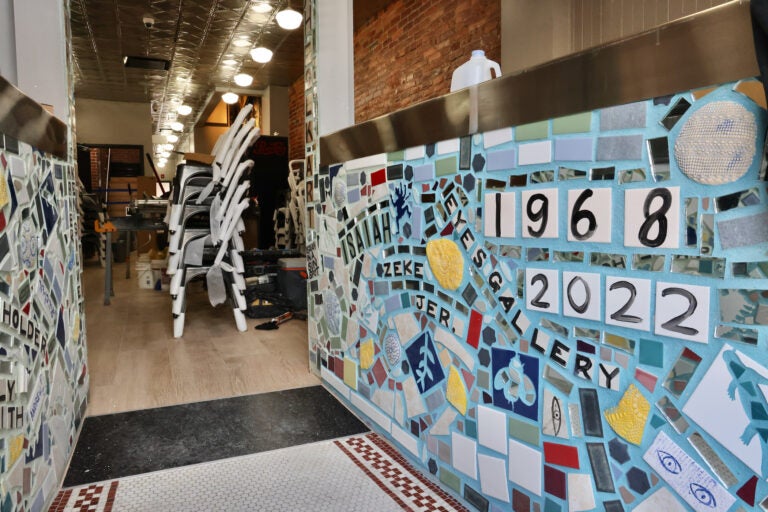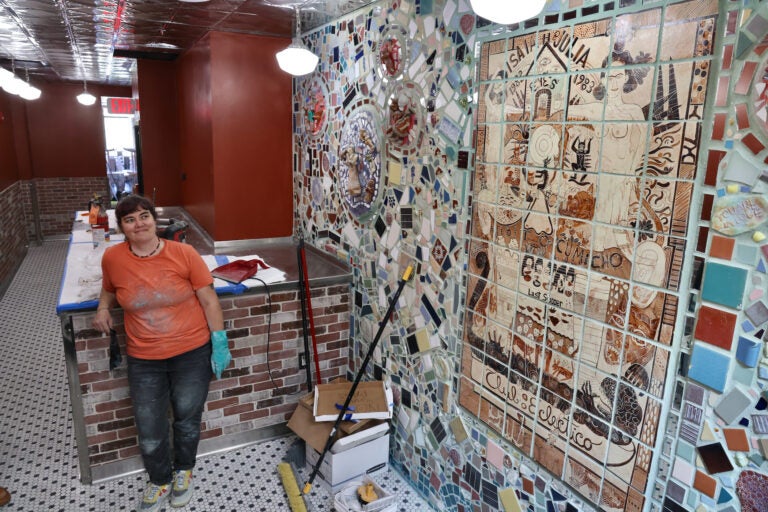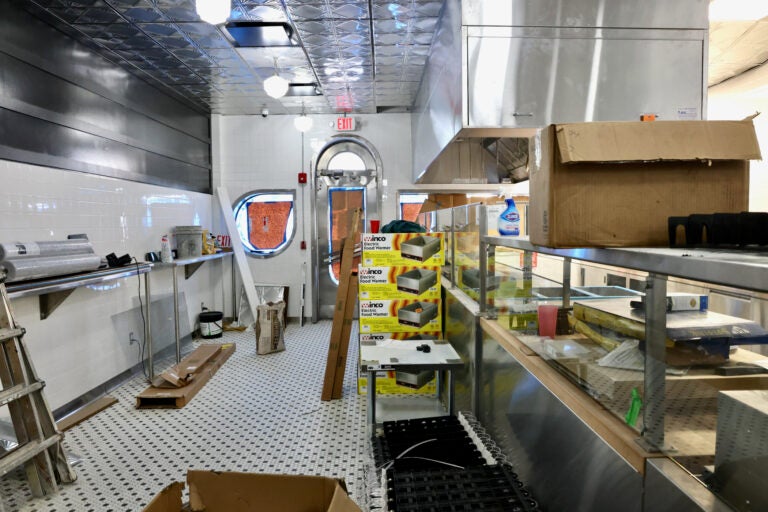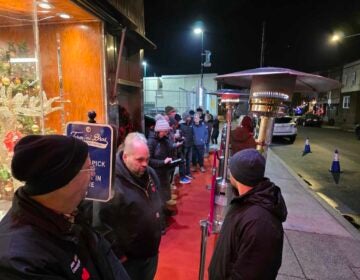Jim’s Steaks reopens this week, embracing Isaiah Zagar’s former home
Two South Street landmarks were destroyed in a 2022 fire: Jim’s Steaks and the neighboring Eyes Gallery. The two buildings are now one.
From Philly and the Pa. suburbs to South Jersey and Delaware, what would you like WHYY News to cover? Let us know!
When Jim’s South Street reopens on Wednesday, 21 months after a fire gutted the cheesesteakerie, it will look mostly familiar.
The black-and-white tile and mid-century stainless trim is back, and so is the long grill sizzling with a come-hither smell. For cheesesteak lovers and Jim’s fans, it will feel like coming home again.
But when customers turn around with their wrapped torpedos of salted meat they will also notice that their beloved steak shop has expanded into its neighboring building, the former home of both the Eyes Gallery and artist Isaiah Zagar.
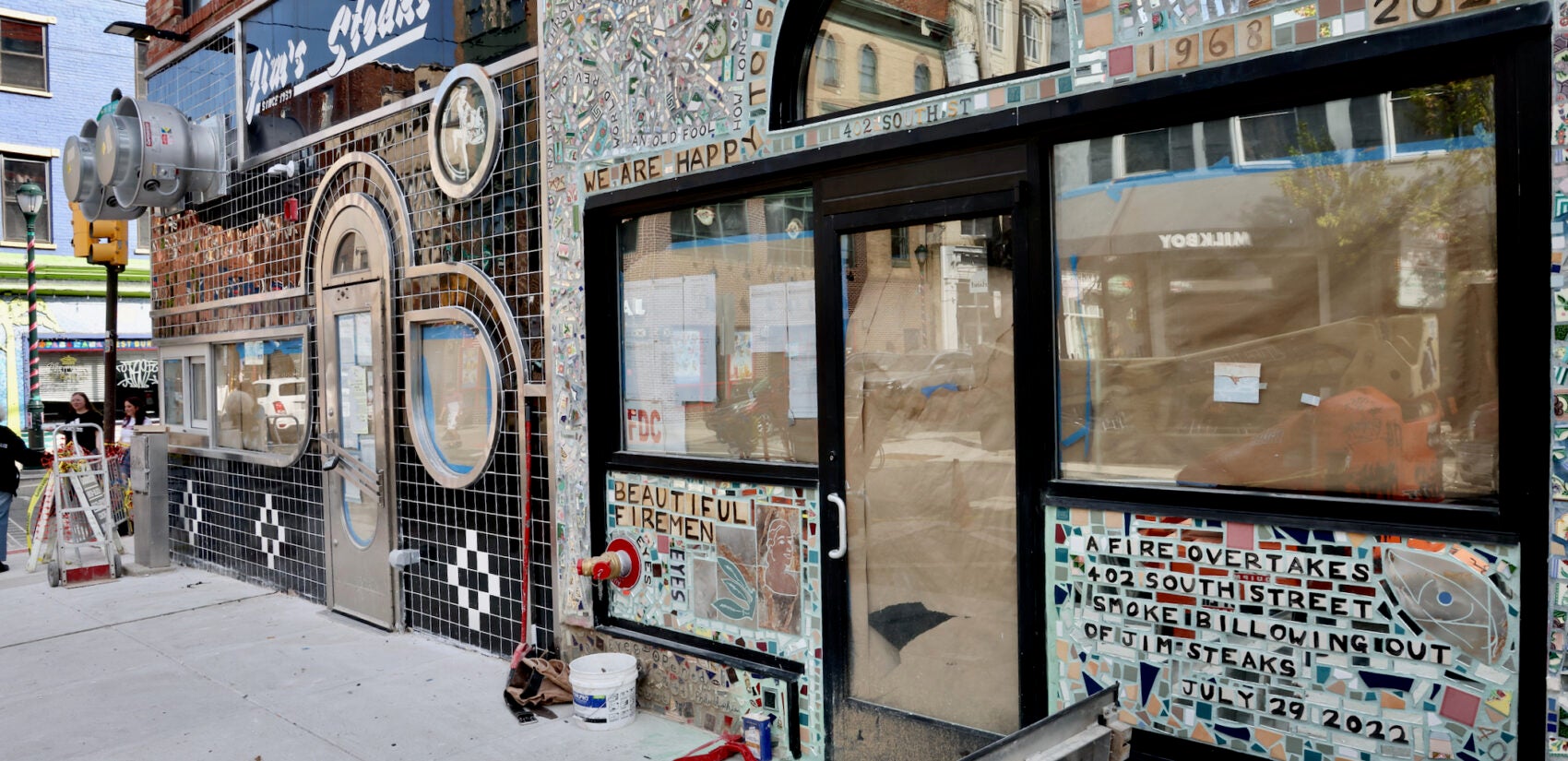
“When Jim’s went down it was just horrible for everybody. Then to have Eyes go down with it was devastating,” said Emily Smith, executive director of Magic Gardens, a public art environment built by Zagar over decades.
Rebuilding the original Jim’s required extensive upgrades to its systems and structure. The additional build-outs needed to make the building code compliant ate up about a third of its available floor space, Silver said.
“We were already having to move our production facility into the basement,” he said. “It would have been very difficult to operate as a going concern without changing the area available to us.”
He called it “serendipitous” that Julia Zagar reached out to him in December 2022 with an offer to sell her former home and the gallery.
Instead of gutting Zagar’s building and renovating to match the Jim’s aesthetic, Silver decided to preserve the history of both buildings. He partnered with the nearby Magic Gardens to restore Isaiah Zagar’s wall mosaics and build new ones in the same style.
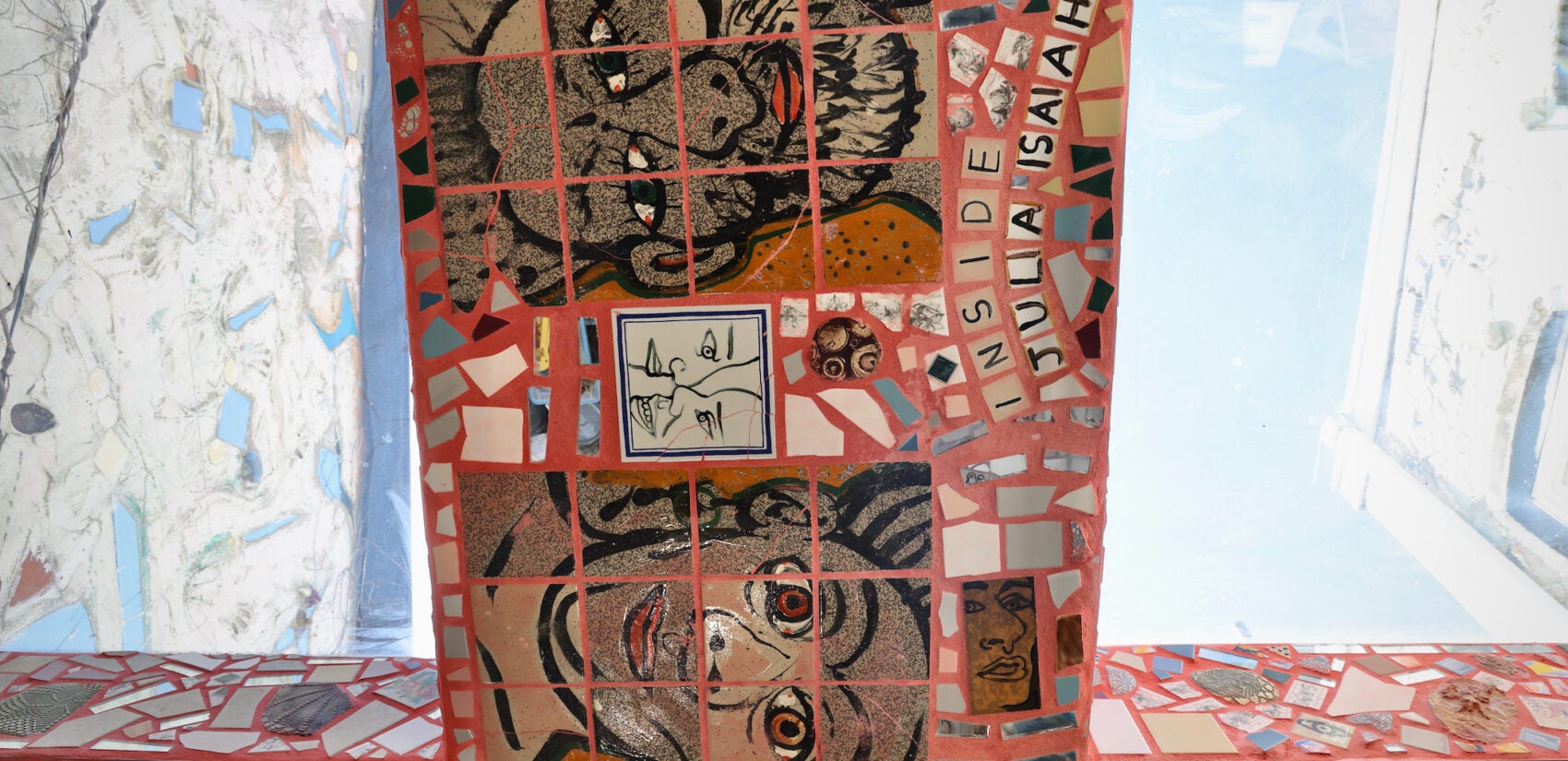
The result is a fusion of two contrasting South Street icons: Jim’s stark monochromatic tile now butts up against Zagar’s amorphous, candy-colored mosaics.
Last week Zagar returned to her old building for the first time since renovations began. Artisans were busy assembling mosaics to get the space ready for its May 1 opening. She gaped at how Silver has transformed her former space.
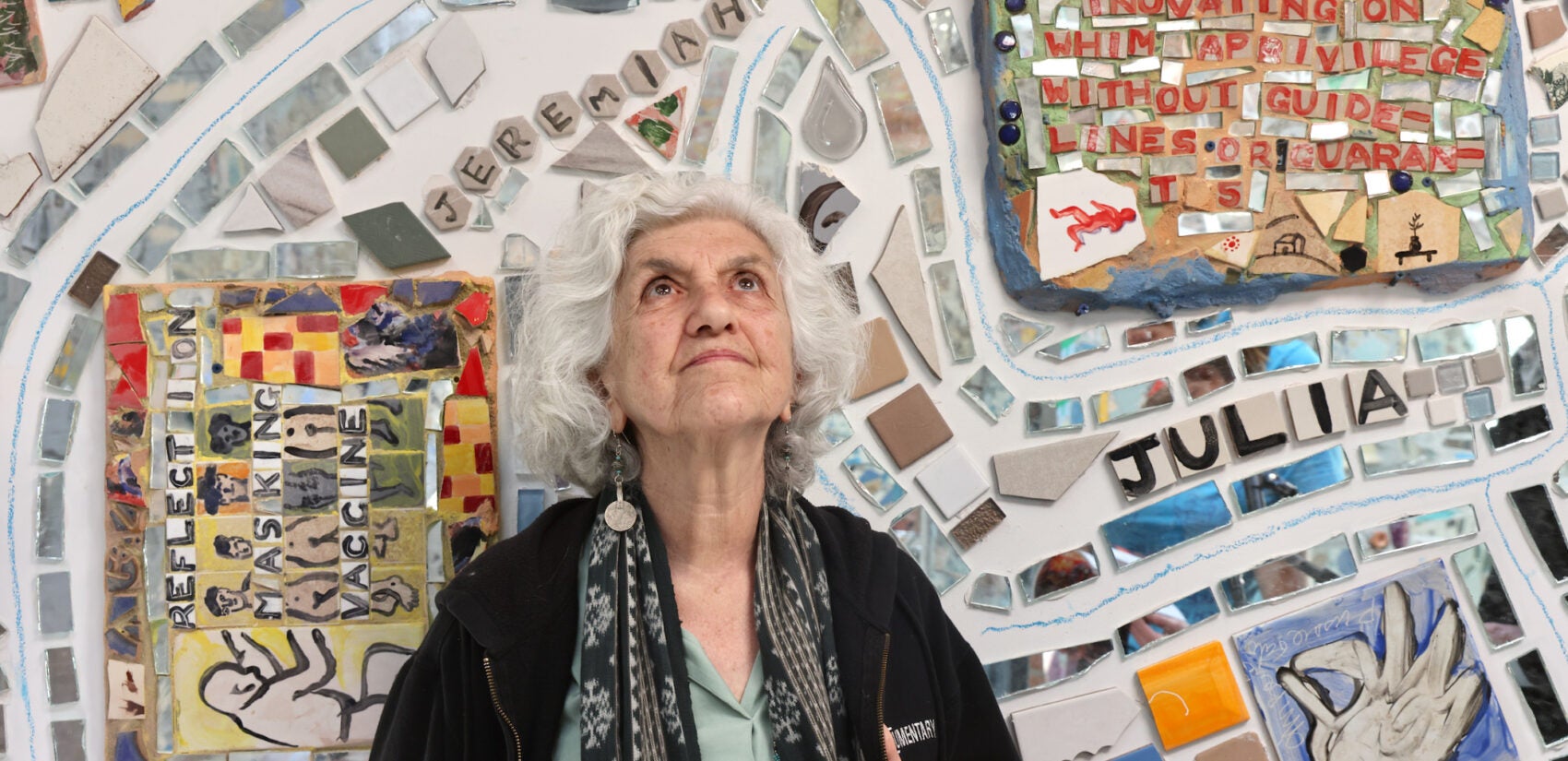
The gallery was not just Zagar’s shop; it was her home where she raised two kids. Bought in 1968 when it was a ramshackle flophouse, she and Isaiah rebuilt much of their house by hand.
“This whole space was our living room — our loft,” she said. “We were from New York, you had to live in a loft then. In 1968 you lived in a loft.”
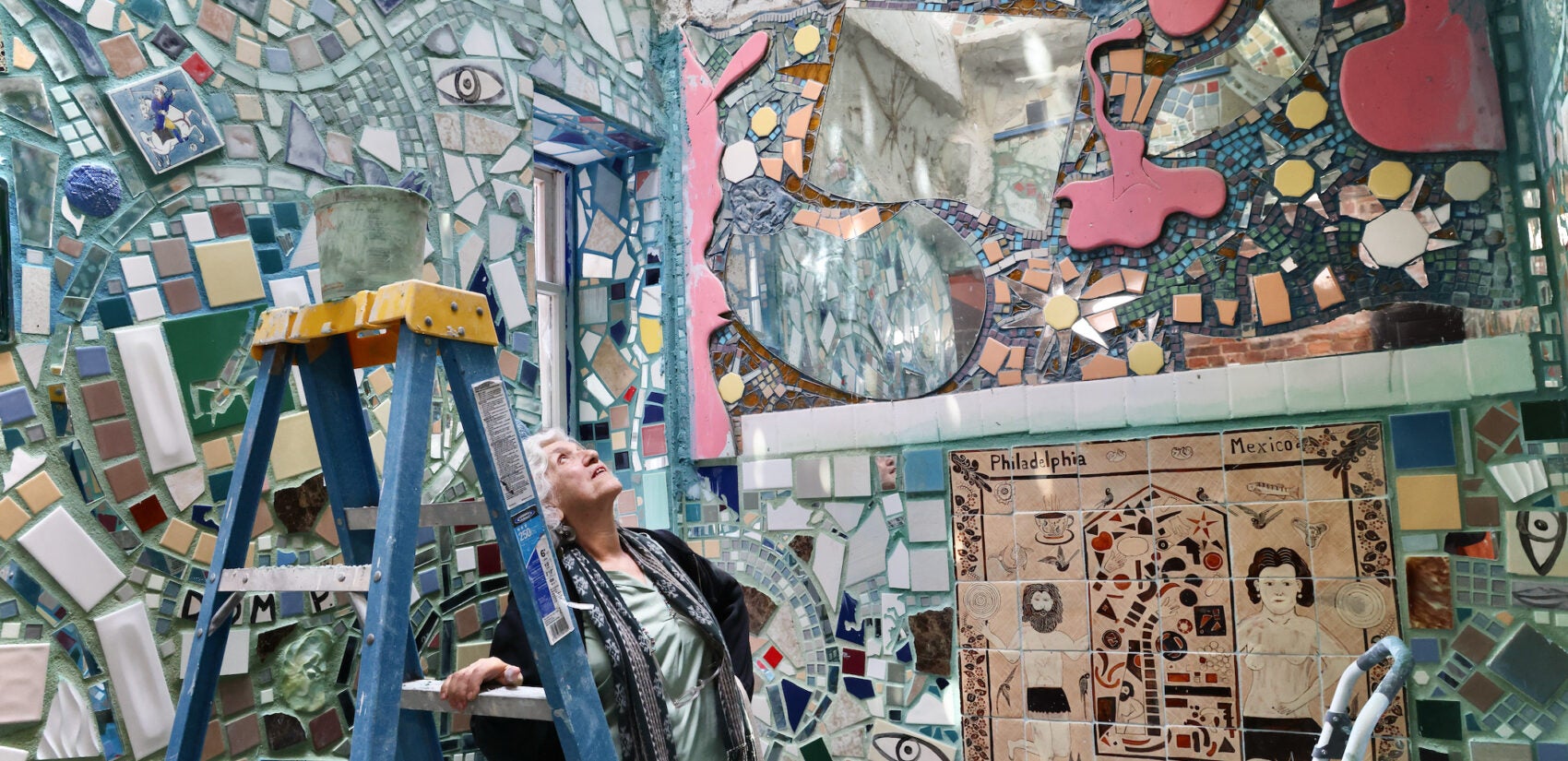
That loft is a two-story shaft running through the third floor up to a skylight in the roof, all of it covered in broken tile mosaics. The Zagars had designed it to bring sunlight into the otherwise windowless space on the second floor.
Silver said the loft is his favorite spot in the Zagar building. He preserved it as a niche dining space, with just enough space for one six-top table enveloped by mosaics and spotlit by the sun.
“People are going to nest here, I think. It’s going to be the best table in Philly,” Smith said. “That is gonna be the weirdest place to have a cheesesteak.”
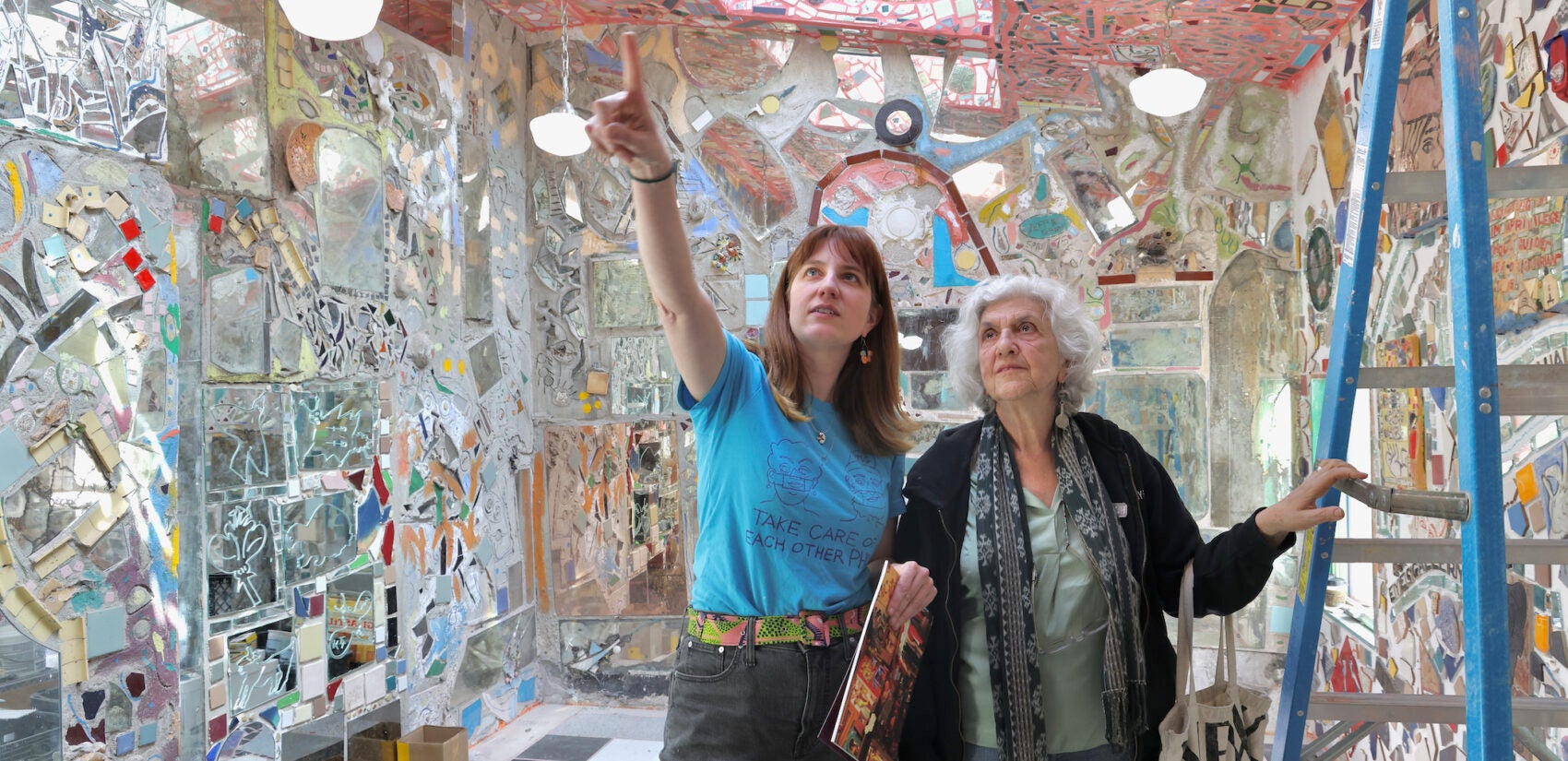
“Oh my god,” gasped Zagar when she saw her old loft restored. She then laughed. “That always leaked.”
The building itself tells the story of art in Philadelphia and bears testimony to Isaiah Zagar’s journey. Zagar is known to have struggled with mental health and was hospitalized in 1968 after a nervous breakdown.
Tearing down walls and rebuilding them as mosaics was part of his recovery. “It’s how he came back,” Julia Zagar said.
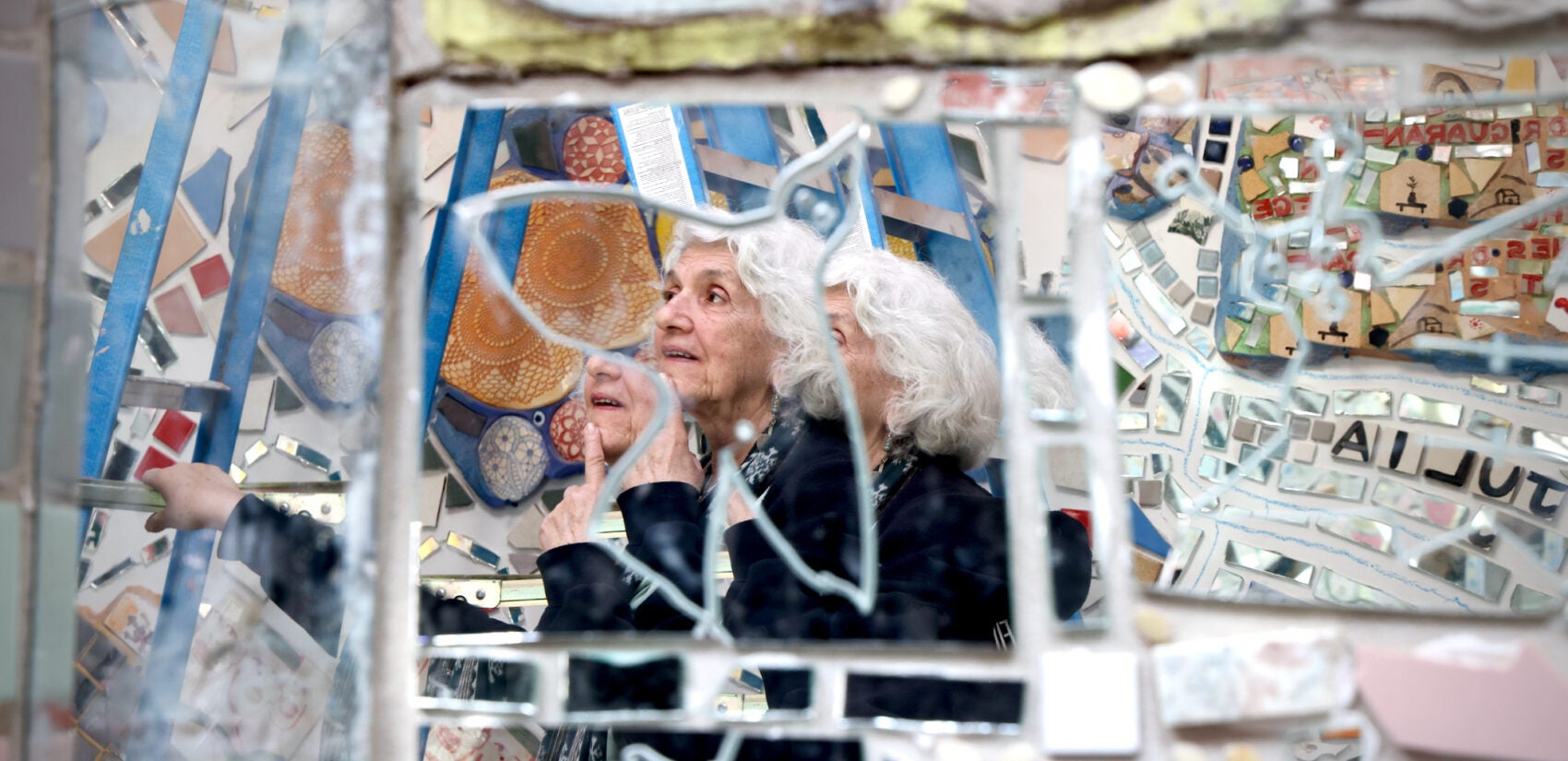
A wall heavily damaged by water during the fire was pulled down during the renovations to reveal a forgotten mosaic: Zagar’s first large-scale wall piece hiding behind drywall. In 1975 he and partner Jeff Baumann, a mason, devised a technique where Baumann would trowel wet grout onto a wall and Zagar would immediately lay in tile and mirrors.
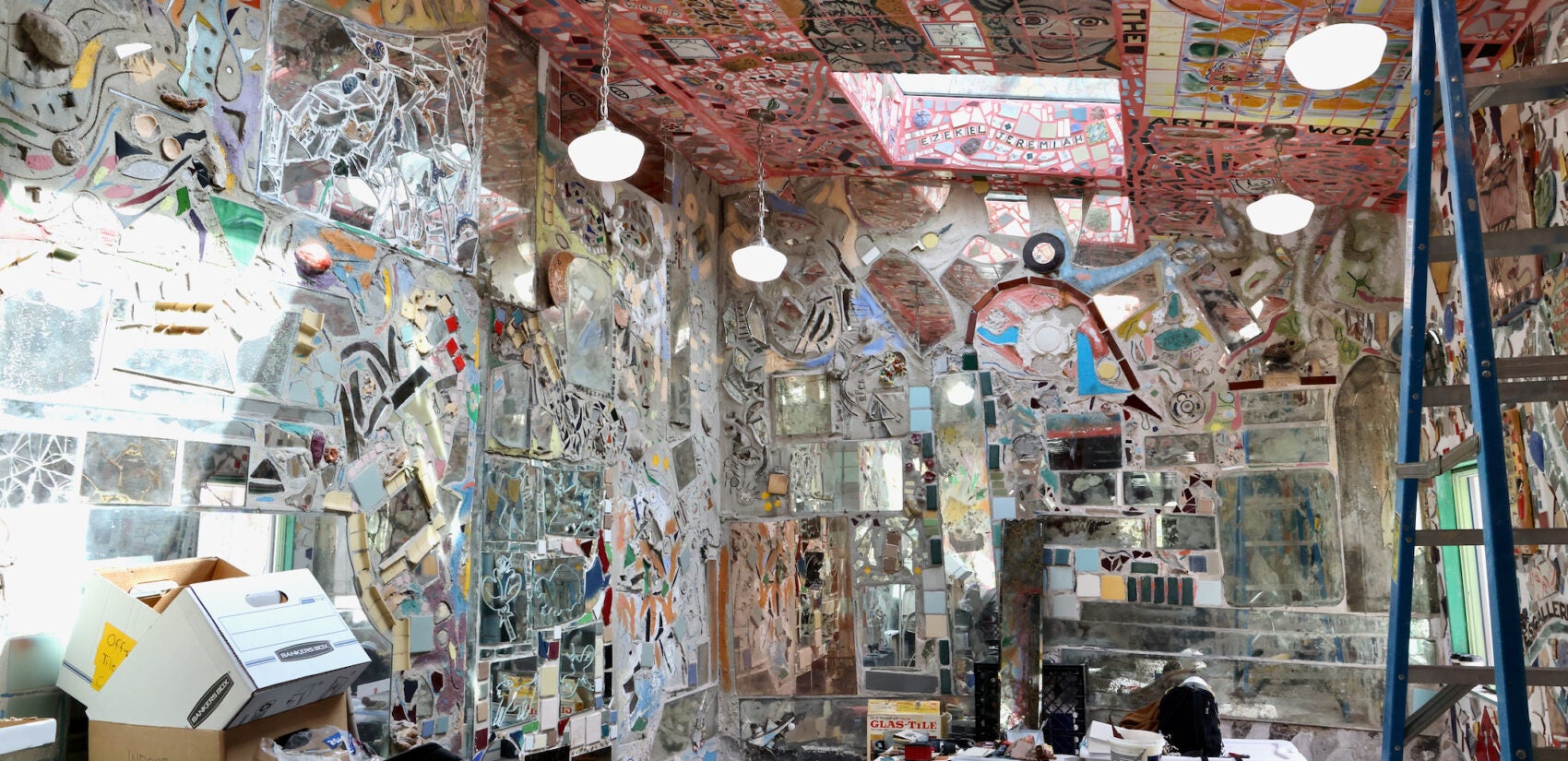
Labeled “Isaiah and Jeff 1975,” it was a first stab at the artistic style that would make Zagar one of Philadelphia’s celebrated artists.
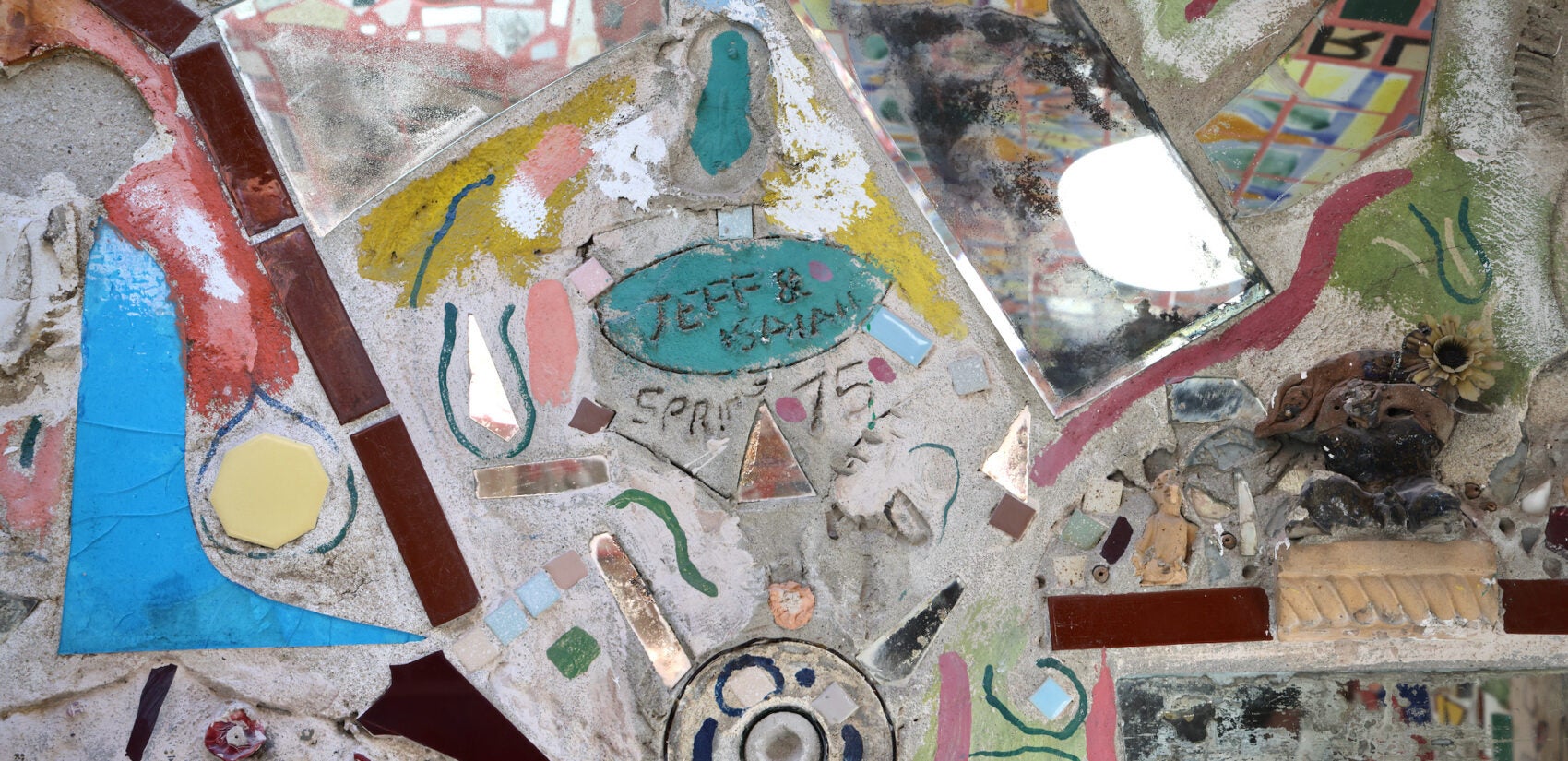
A tale of two neighbors
The relationship between the Zagars and the Silvers go way back. Ken’s father, Abner Silver, who bought Jim’s Steaks in 1976, joined the Zagars in the South Street movement to block the construction of a highway and create a vibrant commercial corridor.
The Silvers and the Zagars are part of a story about protecting South Street from destruction. It’s also a story about neighbors being neighborly.
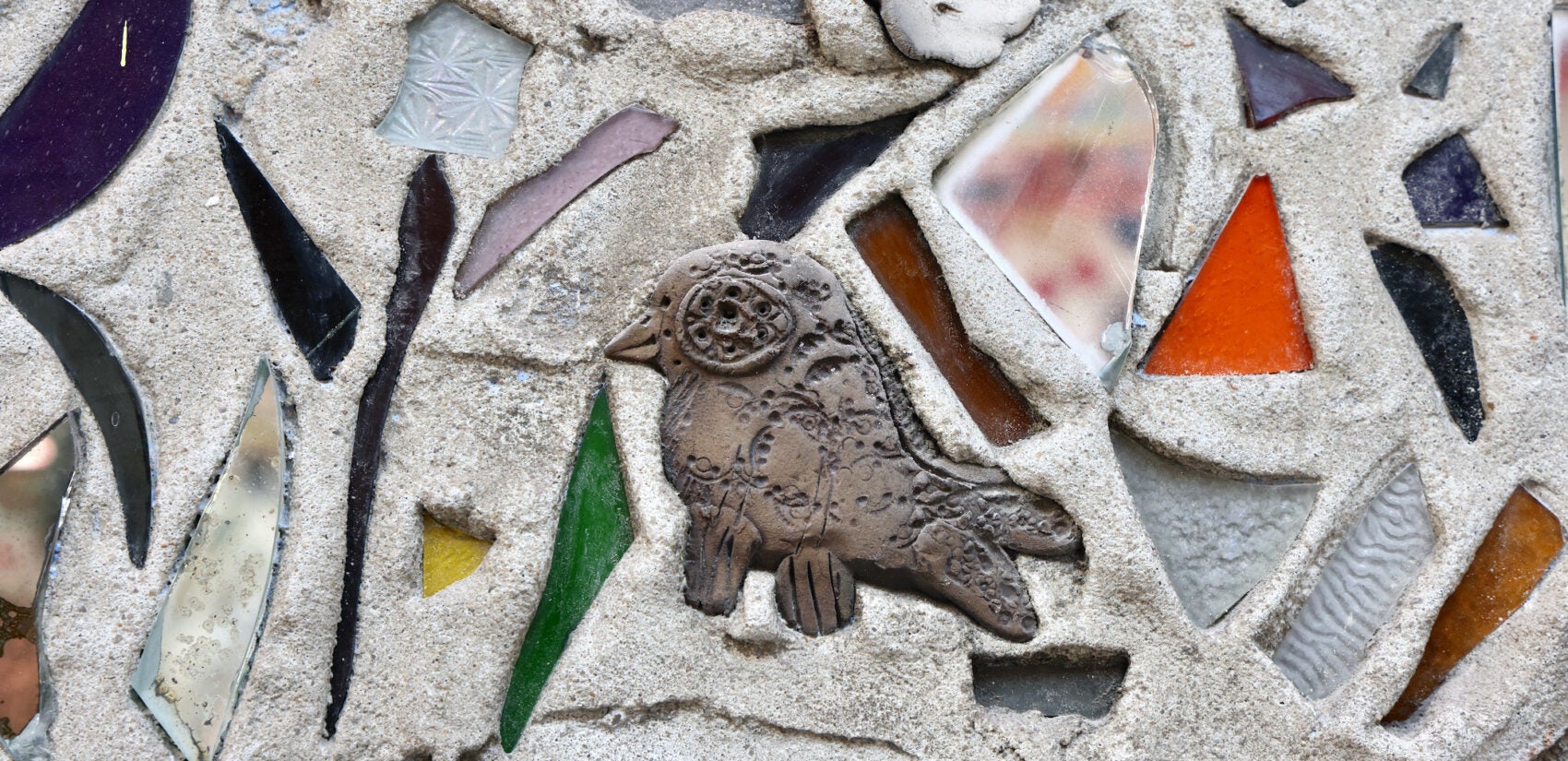
“We weren’t best friends, but we were certainly on good terms and we enjoyed each other,” Julia recalled. “The children used to jump on trampolines from one roof to another, from their roof to our roof.”
Isaiah Zagar contributed new mosaics to the restored building, but in a limited capacity due to his diagnosis of Parkinson’s disease. The front of the building has new panels of mosaics, including tiles with text that describe and date the fire on July 29, 2022, with the added comment “Beautiful Firemen.”
“So many people on South Street now are young and they don’t know the legacy of South Street, the years that went into it and went into Jim’s steaks, went into Eyes Gallery, and all the people that were involved in it,” she said. “This is the story.”
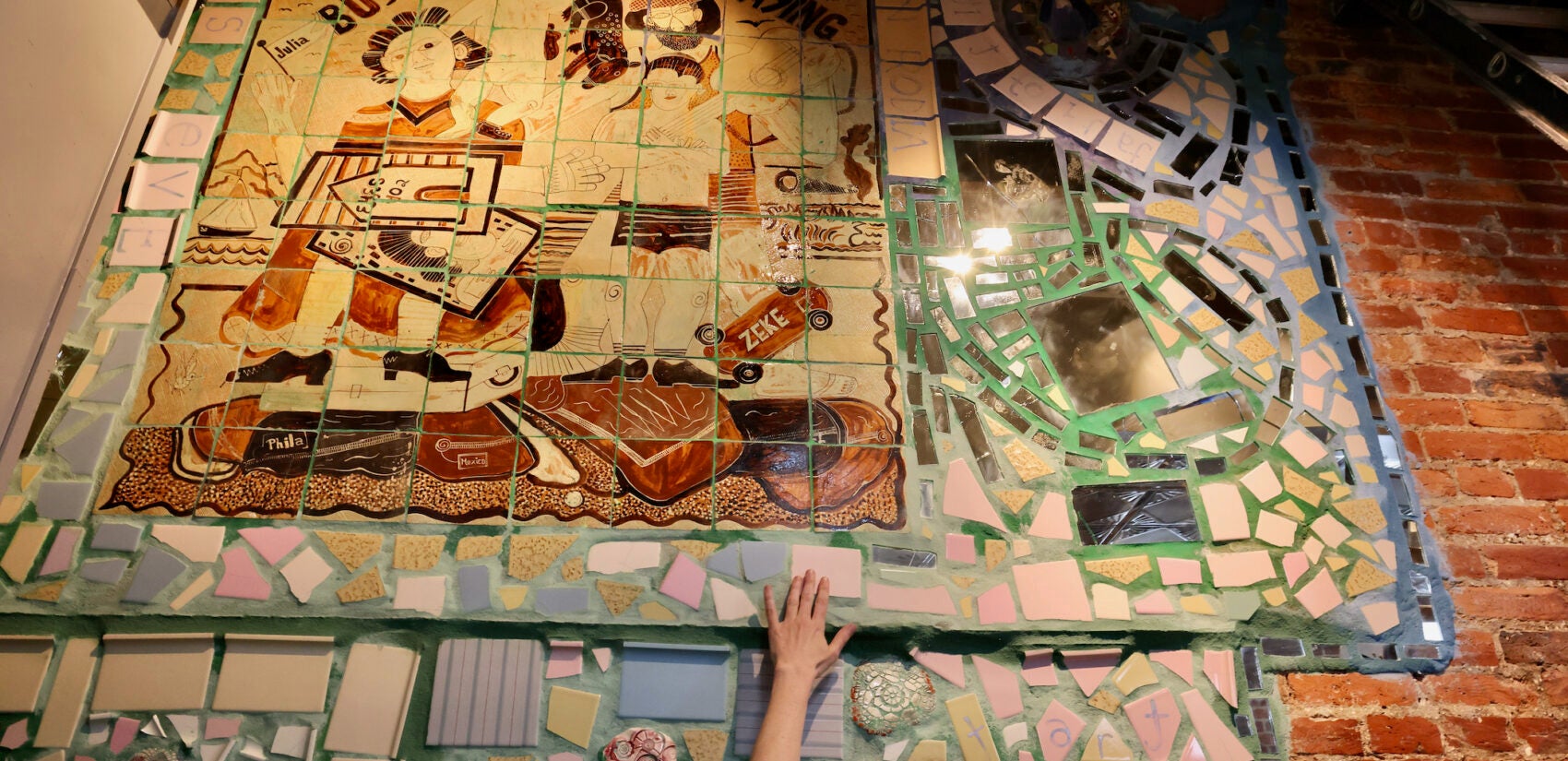
Silver knows people come to Jim’s for cheesesteaks, not necessarily for history. But if people want to eat upstairs, they have to take the stairs in the Zagar house and witness a uniquely Philadelphia historical site.
“We kind of wanted to force people to experience both sides, even if they were only there to see Jim’s and get a cheesesteak,” he said. “The fact that this incredible eye candy that Isaiah had produced, I didn’t want people not to be able to see it when they came to visit us.”
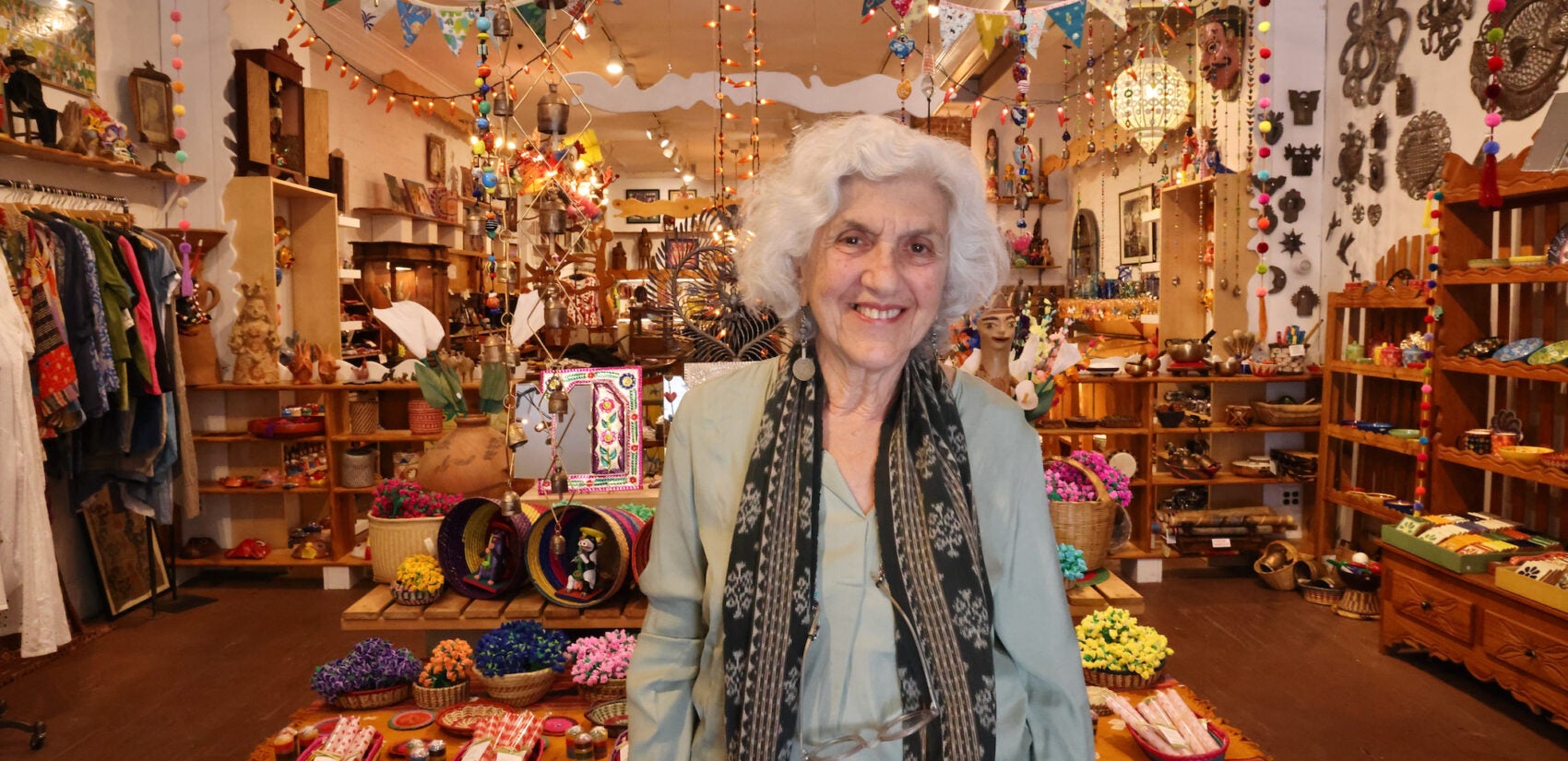

Saturdays just got more interesting.
WHYY is your source for fact-based, in-depth journalism and information. As a nonprofit organization, we rely on financial support from readers like you. Please give today.



